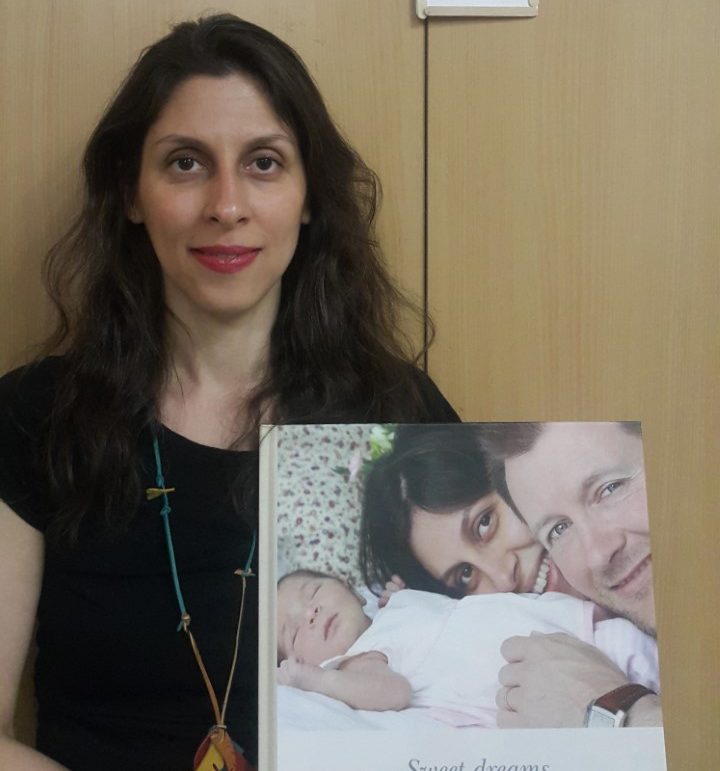
UK Must Change Soft-Diplomacy Approach to Protect Nazanin from Further Injustice
The UK government must react firmly and quickly to the latest hostile move against British national Nazanin Zaghari-Ratcliffe.
The Iranian Revolutionary Guard Corps (IRGC) announced on 8 September 2020 that a second trial against Nazanin will take place on Sunday 13 September. She faces a charge of spreading propaganda against the regime, but court documents indicate that the case relies on the same groundless accusations against Nazanin as her original conviction.
The second court case repeats the numerous violations of her rights under international human rights law and Iranian law that occurred in her first conviction, and it is anticipated that, similar to previous court hearings, it will not be conducted fairly. Her lawyer has been given less than a week to prepare her defence, and news of her trial was released by an Iranian broadcaster before the family had left the courtroom, while her lawyer was still reading the file.
“There is no legal basis for Nazanin’s ongoing imprisonment. The revival of a second court case signals a clear intention on the part of Iran to hold Nazanin as a political pawn and threatens to prolong her suffering indefinitely,” said Leanna Burnard, REDRESS’ Legal Officer.
Burnard added:
“The UK government must assert Nazanin’s rights under international law, given its decision to exercise diplomatic protection in her case. It must insist on urgently visiting Nazanin and seeking consular access to attend Nazanin’s second trial, to demonstrate to Iran that it is ready to protect the legal rights of its nationals.”
Nazanin is the only case in Iran for which a Supreme Leader’s Order from 17 March 2020 granting clemency to her and thousands of other prisoners has not been implemented, marking her out as a unique prisoner. She is the only known prisoner who was released on furlough in March due to the Covid-19 pandemic with an ankle tag and has had to wear it for many more months than the customary 60 days for similar cases.
Nazanin has been forced to wear an ankle tag with a range of only 300 metres from her parents’ house during the last six months, which has made her furlough more akin to house arrest, prolonging her extreme isolation, and more crucially, preventing her from accessing critical medical treatment. REDRESS has previously highlighted Iran’s obligation under Iranian and international law to provide Nazanin and other prisoners with medical treatment.
Nazanin urgently needs treatment for lumps in both her breasts; a damaged disk in her neck; severe depression and post-traumatic stress disorder as a result of having been held in inhumane conditions that amount to torture under international law. After more than four years in prison, Nazanin remains separated from her husband and daughter who are in the UK.
Following a REDRESS submission, the United Nations Working Group on Arbitrary Detention found in 2016 that Nazanin’s imprisonment was unlawful and ordered Iran to release her. It found that it was clearly impossible to invoke any legal basis justifying the deprivation of liberty and there was a non-observance of international norms relating to the right to a fair trial. The Working Group referred her case to the UN Special Rapporteur on Torture, who last year found that this treatment may amount to torture and urged once more Iran to release Nazanin.
REDRESS advocated for the UK government to grant diplomatic protection to Nazanin, which was afforded in March 2019. Diplomatic protection is a formal state-to-state process under international law in which a state seeks protection and reparation for breaches of international law committed by another state against one of its nationals. It elevated Nazanin’s case to an inter-state dispute, asserting that the injury to the individual is an injury to the state itself.
Nazanin’s family has long held that Nazanin’s ongoing arbitrary detention is linked to the UK government’s failure to pay an outstanding debt to Iran. The debt accrued during a 1970s arms deal, in which the UK did not deliver 1,500 tanks to Iran following a change in Iranian leadership during the country’s Islamic Revolution. The British courts have accepted that the debt should be paid, but the interest rate is subject to an ongoing dispute.
“Whether or not the debt is paid, Iran remains legally obliged to immediately release those who are subject to arbitrary detention and torture,” said Burnard. “We have urged the government on many occasions to repay the debt, which could be done in the form of humanitarian and medical supplies to address the impact of the Covid-19 pandemic in Iran.”
For more information or for an interview, please contact Eva Sanchis, REDRESS’ Head of Communications, on 07857110076 or [email protected].
Notes to Editors
REDRESS is an international human rights organisation based in London and The Hague that represents victims of torture in obtaining justice and reparations.
REDRESS’s work on Nazanin Zaghari-Ratcliffe’s case is supported pro bono by Professor John Dugard SC (Doughty Street Chambers), Alison Macdonald QC (Essex Court Chambers) and Dr Tatyana Eatwell (Doughty Street Chambers).
For more information, read our Briefing Note on Nazanin’s second court case.
